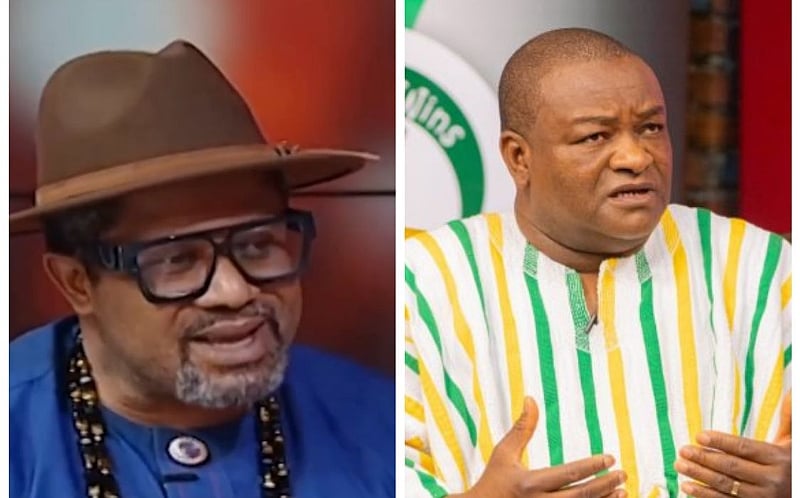The recent public clash between Chukwudi Jude Ihenetu, leader of the Igbo community in Ghana, and Hassan Ayariga, former presidential aspirant and leader of the All People’s Congress (APC), has escalated into a heated exchange of accusations. The controversy stems from criticism directed at Ihenetu over abandoned plans to establish an Igbo kingdom within Ghana, a proposal that sparked considerable controversy and ultimately proved unsuccessful. Ayariga has seized upon this existing tension to launch a series of public attacks against Ihenetu, culminating in allegations of human trafficking and other illicit activities. These claims have significantly amplified the conflict, transforming it from a debate about cultural representation and autonomy into a serious matter involving potentially criminal behavior.
The core of Ayariga’s accusations, aired during an appearance on Metro TV’s “Good Evening Ghana” program, centers on the allegation that Ihenetu is involved in human trafficking. Furthermore, Ayariga made additional unsubstantiated claims, asserting that Ihenetu’s past included selling cassettes before purportedly transitioning into “sponsoring prostitutes” and collecting commissions from their earnings. These accusations, delivered without providing any supporting evidence, painted a damning picture of Ihenetu and significantly escalated the public nature of the dispute. The lack of evidence accompanying the allegations immediately raised concerns about their veracity and fueled speculation about Ayariga’s motives.
Ihenetu vehemently denied all accusations against him during an appearance on TV3’s “New Day” show. He characterized Ayariga’s statements as false, defamatory, and demanded that Ayariga produce concrete evidence to support his claims. Ihenetu challenged the very basis of Ayariga’s authority to make such pronouncements, questioning his role and influence in making such serious accusations and even going so far as to question Ayariga’s claim of having ordered national security agencies to arrest him. He emphasized the gravity of accusing someone of human trafficking and the potential damage such an accusation could inflict on an individual’s reputation.
Furthermore, Ihenetu offered clarification on his business activities, stating that he operates legitimate businesses, including mother care services, and vehemently denied ever having sold cassettes or engaged in any form of human trafficking. He insisted that Ayariga’s portrait of him was entirely fabricated and sought to reassure the public about the lawfulness of his endeavors. By providing details about his businesses, Ihenetu aimed to counter the narrative presented by Ayariga and establish a more accurate representation of his professional life. He also invoked a higher power, stating he “leaves him to God,” suggesting a sense of injustice and a reliance on divine judgment in the face of these accusations.
This public dispute between Ihenetu and Ayariga highlights the volatile nature of public accusations, especially when they involve serious allegations like human trafficking. Ayariga’s claims, made without substantiating evidence, raise questions about the responsibility of individuals and media platforms in disseminating potentially damaging information. While freedom of speech is a fundamental right, the potential for harm through unsubstantiated accusations underscores the need for careful consideration and responsible reporting. The case also emphasizes the importance of due process and the presumption of innocence until proven guilty, principles that are central to a just and equitable society.
The unfolding controversy also underscores the complex dynamics within Ghanaian society, particularly regarding the integration and acceptance of different ethnic groups. The initial controversy surrounding Ihenetu’s proposed Igbo kingdom touched upon sensitive issues of cultural identity and territoriality. Ayariga’s subsequent accusations, regardless of their veracity, have further complicated these dynamics and introduced a new layer of tension to the existing friction. The situation underscores the need for ongoing dialogue and understanding between different cultural groups to foster peaceful coexistence and mutual respect. The resolution of this controversy, and the way in which it is handled by the relevant authorities and the media, will likely have implications for the future of inter-community relations in Ghana.


